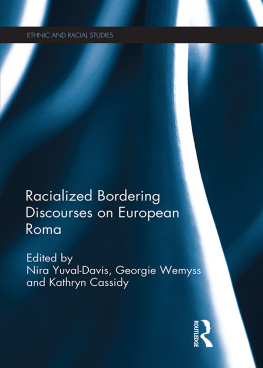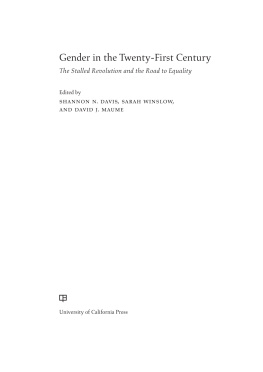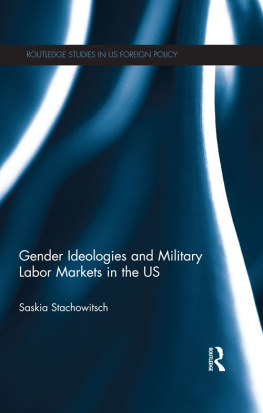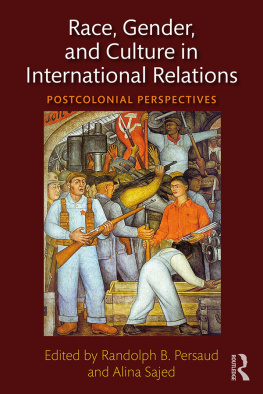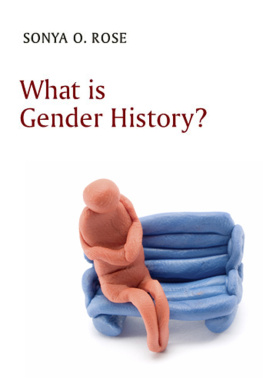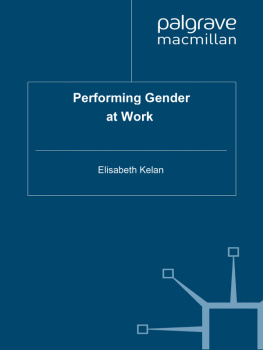Gender & Nation
Politics and Culture
A Theory, Culture & Society series
Politics and Culture analyses the complex relationships between civil society, identities and contemporary states. Individual books will draw on the major theoretical paradigms in politics, international relations, history and philosophy within which citizenship, rights and social justice can be understood. The series will focus attention on the implications of globalization, the information revolution and postmodernism for the study of politics and society. It will relate these advanced theoretical issues to conventional approaches to welfare, participation and democracy.
SERIES EDITOR: Bryan S. Turner, Deakin University
EDITORIAL BOARD
J.M. Barbalet, Australian National University
Mike Featherstone, University of Teeside
Stephen Kalberg, Boston University
Carole Pateman, University of California, Los Angeles
Also in this series
Welfare and Citizenship
Beyond the Crisis of the Welfare State?
Ian Culpitt
Citizenship and Social Theory
edited by Bryan S. Turner
Citizenship and Social Rights
The Interdependence of Self and Society
Fred Twine
The Condition of Citizenship
edited by Bart van Steenbergen
National Formation
Towards a Theory of Abstract Community
Paul James
This book is dedicated to Gul, Alain, Ora and to my wonderful friends whove enabled me to go on, and sometimes to even dance
Gender & Nation
Nira Yuval-Davis

Nira Yuval-Davis 1997
First published 1997
Reprinted 1998, 2000, 2002, 2003, 2004, 2005, 2006, 2007, 2008 (twice)
All rights reserved. No part of this publication may be reproduced, stored in a retrieval system, transmitted or utilized in any form or by any means, electronic, mechanical, photocopying, recording or otherwise, without permission in writing from the Publishers.

| SAGE Publications Ltd 1 Olivers Yard 55 City Road London EC1Y 1SP SAGE Publications Inc 2455 Teller Road Thousand Oaks, California 91320 SAGE Publications India Pvt Ltd. B 1/11 Mohan Cooperative Industrial Area Mathura Road, New Delhi 110 044 India SAGE Publications Asia-Pacific Pte Ltd 33 Pekin Street #02-01 Far East Square Singapore 048763 |
British Library Cataloguing in Publication data
A catalogue record for this book is available from the British Library
ISBN: 978-0-8039-8663-3 (hbk)
ISBN: 978-0-8039-8664-0 (pbk)
Library of Congress catalog record available
Typeset by M Rules
Printed and bound in Great Britain by
Athenaeum Press Ltd., Gateshead, Tyne & Wear.
CONTENTS
PREFACE
Writing this book has been, in some ways, a culmination of many years of work both academically and politically in the areas of gender and ethnic studies. The original impetus arose from studying gender relations in Israel and the ways they have related to the Zionist settlement project and the IsraeliArab conflict. I then moved on to study gender and ethnic divisions in South East London and later turned to examine them in other settler societies as well as in Europe. A particularly significant landmark quite early on in the journey has been the international workshop I organized in 1984 on Women and National Reproduction in which I had, for the first time, the opportunity to share with significant others from other parts of the globe my ideas on women as bearers of collectivities (Yuval-Davis, 1980) and out of which eventually came the volume WomanNationState (Yuval-Davis and Anthias, 1989). Just before the present book went to press, another important signpost emerged. In a much larger conference on Women, Citizenship and Difference, also organized at the University of Greenwich in July 1996 (see the special issue of Feminist Review (autumn 1997) based on this conference and the volume co-edited by Pnina Werbner and myself for Zed Books (1988)), we celebrated the growth of consciousness and insight in this arena of study, at a time when so many new and urgent questions, both political and theoretical, continue to emerge.
As is already clear from the above, my journey, which has involved personal travel, displacement, shifting and anchoring (rather than rerooting), would not have been possible without the many companions I have had for shorter or longer stretches. I cant possibly name them all here, but in particular I want to mention the other members of the Khamsin collective, especially Avishai Ehrlich; my friend and colleague Floya Anthias with whom Ive worked on the Gender and Ethnic Divisions project and on several books; the members of Women Against Fundamentalism, especially Gita Sahgal and Pragna Patel; as well as other friends and colleagues from near and far without whom the ideas and narratives in this book could never have been constructed in the ways they have been. To mention some of them in alphabetical order: Martha Ackelsberg; Alison Assiter; Gill Bottomley; Avtar Brah; Stephen Castles; Amrita Chhachhi; Cynthia Cockburn; Phil Cohen; Clara Connolly; Cynthia Enloe; Robert Fine; Marieme Helie-Lucas; Deniz Kandiyoti: Helma Lutz; Helen Meekosha; Maxine Molineux: Ephraim Nimni; Ruth Pearson; Jindi Pettman; Annie Phizaclea; Ann Phoenix; Shula Ramon; Nora Rtzel; Paula Rayman; Israel Shahak; Max Silverman; Elaine Unterhalter; Gina Vargas; Peter Waterman; and Pnina Werbner.
Special thanks are due to Daiva Stasiulis (of the Lithuanian connection) with whom I worked on the book Unsettling Settler Societies (Stasiulis and Yuval-Davis, 1995) and who went over the present text in its raw state. Her many useful comments, as well as those of Bryan Turner, the series editor, and the Sage editors, Karen Phillips and Kiren Shoman, have vastly improved the book. I also want to thank my students in the MA in Gender and Ethnic Studies at the University of Greenwich and of the short course Gender and Nation I taught in 1994 at the Institute of Social Studies in The Hague, with whom 1 have used various drafts of the book for teaching purposes, and who, in response, generously shared with me experiences and insights from their own standpoints. The responsibility for the way it is, however, is of course all mine.
Given everything else which needs to be done, the writing of this book would not have been possible were it not for the breathing space given to me for a few months as a Morris Ginsburg Fellow at the London School of Economics in 1991; as a Visiting Research Fellow at the Institute of Social Studies in The Hague (in 1992); and as a result of the QR allowance which released me from some weekly teaching hours at the School of Social Sciences (under the benevolent headship of Mike Kelly) at the University of Greenwich (19936). I am indebted to all these institutions. Most of the inspiration, however, whenever I got stuck in the writing, came while gazing at the sea waves from Romani in Happisburgh, Norfolk.
The last, or probably first, thanks are due of course to Alain, who has constantly been there for me. And to Gul who did his best but my English never could come up to his standards.
Although this book was written as a coherent whole, parts of the various chapters were published as separate papers elsewhere (Gender and nation, Ethnic and Racial Studies
Next page

